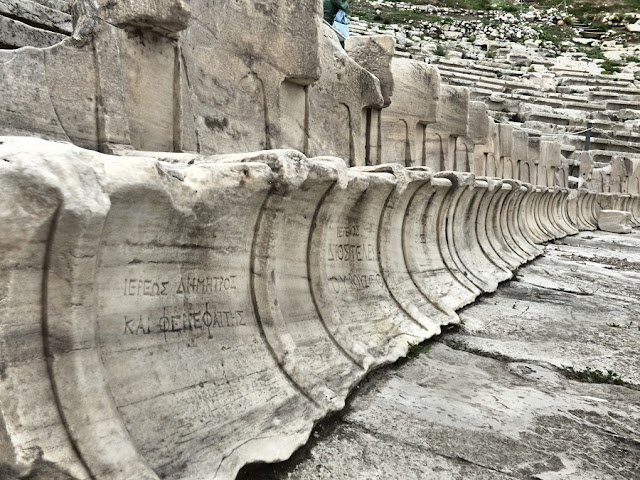A STAGE FOR DIONYSUS
00:46:00
Dedicated to Dionysus, the theatre of Dionysus Eleuthereus is a major theatre in Athens, built at the Acropolis. The theatre and sanctuary of Dionysus Eleuthereus is the first monumental complex to be seen when entering the archaeological site of south slope, in the Athenian Acropolis. It is the first stone theatre ever built and supposedly birthplace of Greek tragedy. The theatre could seat as many as 17,000 people with excellent acoustic, making it an ideal location for ancient Athens' biggest theatrical celebration, the annual spring festival of "Dionysia".
At the end of 6th century B.C. Democracy and ancient Drama were born in Athens. These are two major gifts given to mankind by the Greek world. Aristotle in his "Poetics" is the first who defines the forerunners of drama stressing the organic relationship between the theatre and the cult of Dionysus. This god of grape harvest, wine and ecstacy, was the incarnation of the forces of fertility expressing the circle of life from birth to death, while his dual nature justifies the mimical rituals that form part of his cult. Therefore, from the Dionysiac rituals evolved the ancient Greek drama.
The early theatre must have been very simple, comprising a flat orchestra, with a few rows of wooden or stone benches set into the hill. A large statue of the god had been placed in the middle of the circular orchestra where the chorus could sing and dance, so that the god himself could watch the plays and the sacrifices to his name. The remains of a restored Roman version of the theatre can still be seen at the site today. The inscriptions on some of the thrones in the first row reveal that they belonged to elected rulers and priests while the other seats were intended for citizens. Behind the orchestra was a stage on which the actors performed. It was in this unpretentious setting that the plays of the great fifth century B.C. Attic tragedians were first presented.
During the 5th century, the theatre was first used as a regular site for theatrical performances of plays written by the great poets, such as Aeschylus, Sophocles, Euripides and Aristophanes. Several plays were given in one day, and a prize was awarded to the best by the audience's applause. The plays were written in poetry which deeply stirred the emotions of the Athenians and made them think about the enternal problems of human life and the proper relationship between humans and gods. Fortunately, many of their plays have survived, which give us a unique insight into the the ancient Greek attitude to life.
















0 σχόλια